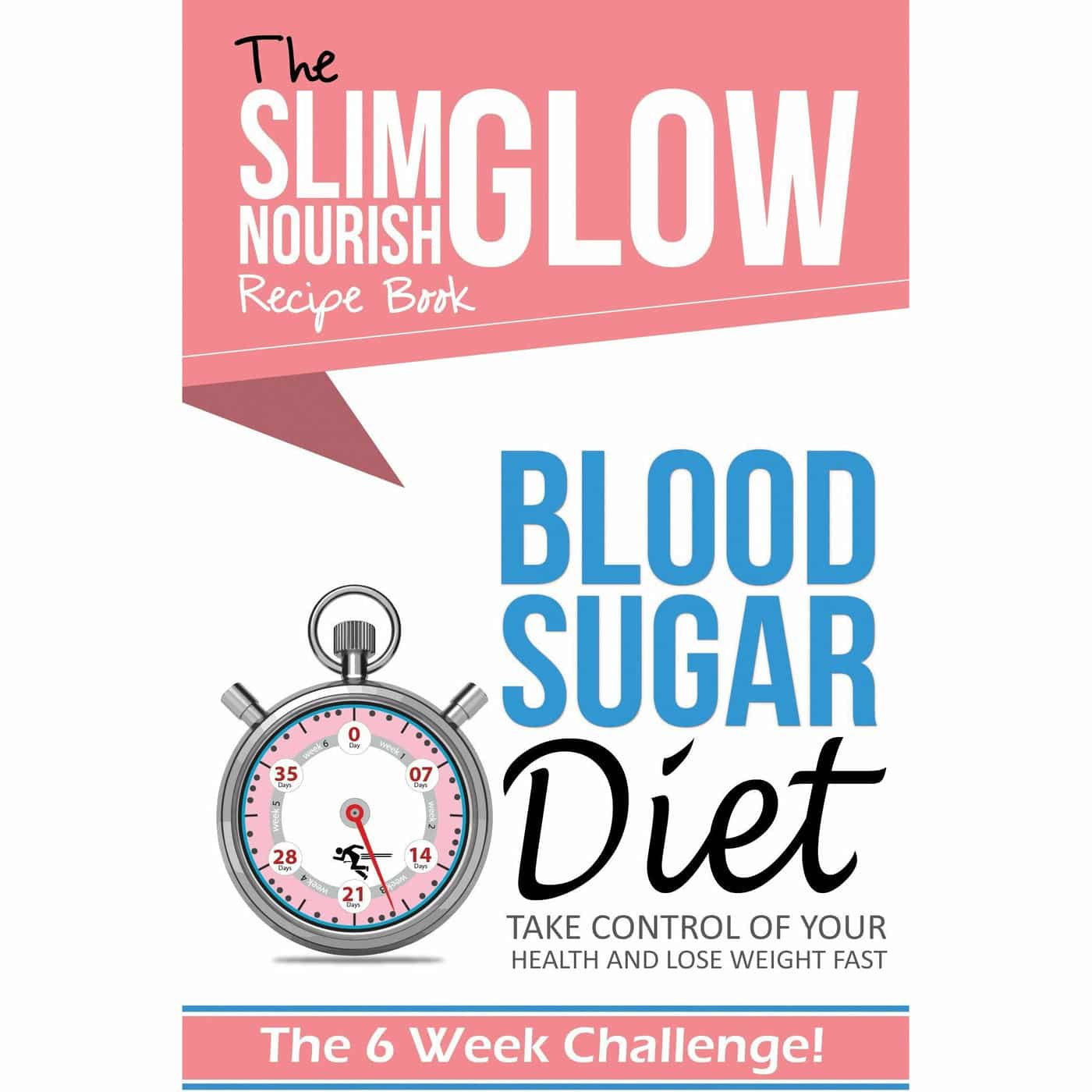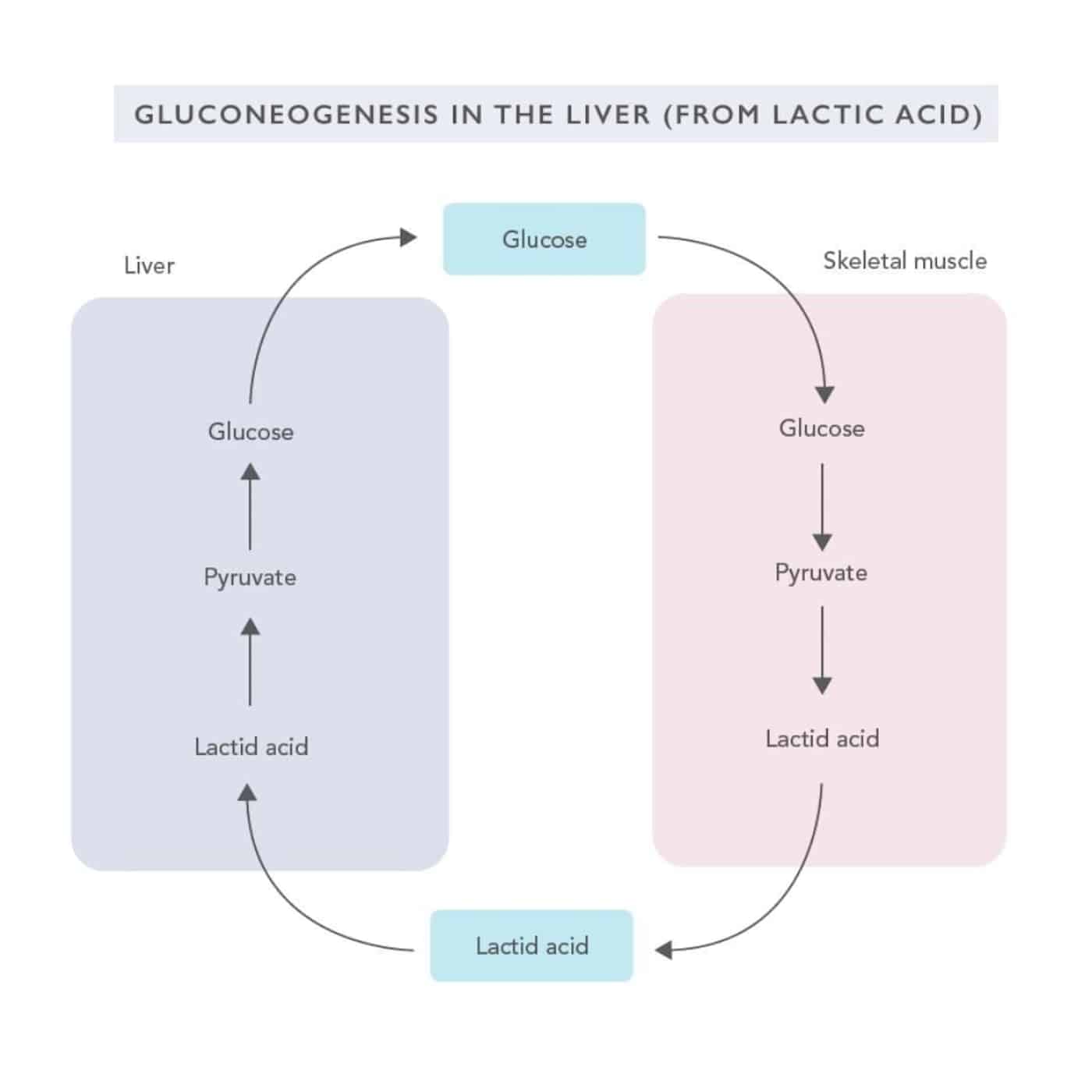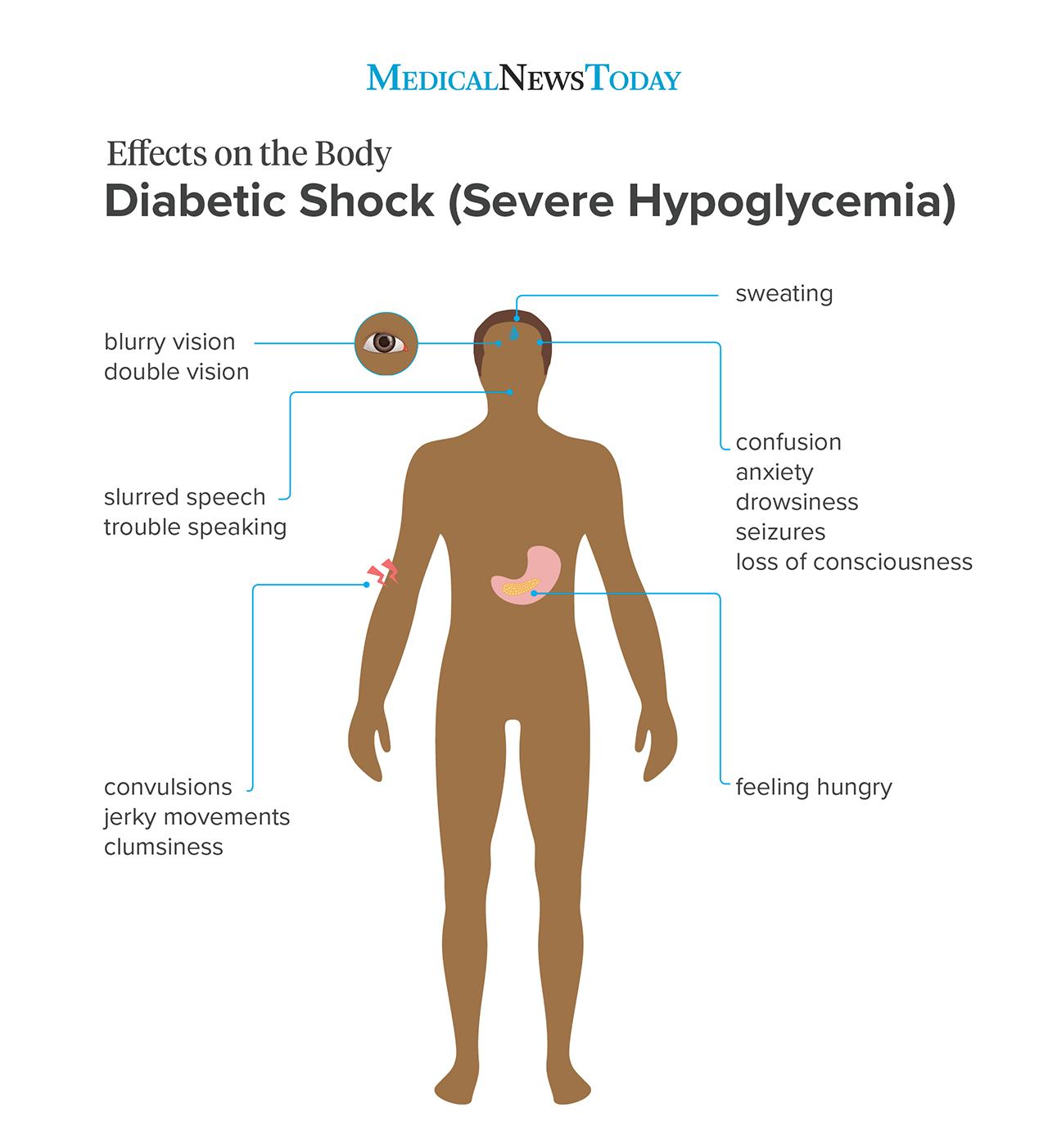How Can I Prevent Low Blood Glucose
All people with diabetes:
- If you experience low blood glucose often, ask your doctor if setting a higher goal for your A1C level may be appropriate.
- Ask your doctor to look at the test results from your home blood glucose monitor. These results reveal how often you have low blood glucose and when these episodes occur. Your doctor will look for patterns to see if low glucose happens after exercise or at certain times of day, for example.
- If you’ve had low blood glucose in the past, consider wearing a medical alert bracelet so that others will know that you have diabetes in the event of an emergency.
- Keep a fast-acting carbohydrate in your bag, desk drawer, car and other places for easy access. Good options include hard candy, fruit juice or glucose paste or tablets, which can be purchased at most pharmacies.
- Ask your doctor for an emergency glucagon kit. This kit contains a fast- acting medication that can be injected in case of loss of consciousness because of low blood glucose. Keep one kit at home and one at work or school.
- Monitor your blood glucose regularly so that low levels can be corrected before symptoms progress.
Understanding Your Blood Sugar
The best way to understand how your blood sugar changes day-to-day is to regularly use a blood glucose meter to check your blood sugar level. If youre newly diagnosed, its also helpful to keep a food journal in addition to a blood sugar log, as well as tracking any physical activity.
Your blood sugar patterns are unique to you. Over time youll have a better understanding of which foods raise your blood sugars the most, as well as how your blood sugar responds to different types of exercise.
Some people with diabetes choose to use a continuous glucose monitor to monitor their blood sugar trends.
A continuous glucose monitor is a device with a sensor worn under the skin which measures blood sugar levels every 5-15 minutes. This is useful for identifying trends in blood sugar levels and can help predict and identify hypoglycemia sooner.
Using a CGM can reduce the amount of finger prick glucose tests needed each day, which is an added benefit.
Tips To Prevent Blood Sugar From Dropping At Night
Hypoglycemia, also known as low blood sugar or low blood glucose, occurs when blood glucose levels drop below normalwhich is typically below a level of 70 milligrams per deciliter . With levels more commonly dipping at nighttime, otherwise referred to as nighttime hypoglycemia, this condition affects mostly patients with diabetes.
You May Like: Can Diabetics Eat Banana
Also Check: Does High Blood Sugar Mean I Have Diabetes
The Blood Sugar Level Regulation Mechanism
When you eat rice, bread, or any other typical food high in carbohydrates, it is digested by the stomach and small intestine, where it is absorbed into the blood as glucose. Figure 1 shows how it is absorbed into the body.
Figure 1: Absorption of glucose
When glucose enters the bloodstream, insulin facilitates its uptake into the bodys cells. When an excess of glucose is ingested, insulin over secretion occurs. Insulin increases the biosynthesis of fat and suppresses its breakdown. Thus, it becomes easier for fat to accumulate in body tissues.
Blood sugar level will not drop if the sugar in the blood is not properly processed due to, for example, too little insulin being secreted, or resistance to the action of insulin. If blood sugar levels have not decreased several hours after eating on a regular basis, this indicates a susceptibility to diabetes. To avoid this and stay healthy, we should eat types of foods that will not cause a sudden, extreme rise in blood sugar levels.
What is BMI?
What is a healthy blood sugar level
- Fasting blood sugar level 99mg/dL
- Postprandial blood sugar level 7.8mmol/L
Recommended Reading: Most Sugar Fruit
Treating Low Blood Sugar

If blood sugar is below 70 mg/dL, it should be treated by consuming food or drink containing 15 grams of carbohydrates.
Fruit juice and candies are preferred as they are rapidly absorbed into the bloodstream. It doesnt take much juice to get to 15 grams of carbohydrates about one-half cup will suffice.
Glucose tablets or glucose gels are a popular treatment for low blood sugar because theyre easy to have on hand in all different types of situations.
They dissolve quickly and provide pure glucose, so the blood sugar rapidly absorbs them to raise blood sugar. They are available over the counter without a prescription, so this is a convenient option for most people.
For cases of severe hypoglycemia, you can use a glucagon injection. Like insulin, glucagon is a hormone the pancreas produces. However, glucagon has the opposite effect as insulin as it stimulates the breakdown of liver glycogen stores into glucose, which raises blood sugar.
Medical professionals must prescribe glucagon injections. Theyre especially helpful to use when hypoglycemia is severe, or the person is too unresponsive to take in food or drink to treat the low blood sugar.
* An unresponsive person should always receive emergency medical treatment.*
You May Like: What Can I Do To Lower My Blood Sugar
The Dangers Of Low Blood Glucose
At some time, most people with diabetes experience the sweating and shakiness that occurs when blood glucose levels fall below 70 mg/dl a condition known as hypoglycemia. The average person with type 1 diabetes may experience symptoms of low blood glucose up to two times a week. However, not all are aware that these symptoms can rapidly progress to seizures, coma and even death if hypoglycemia is severe. Though hypoglycemia can be common and occur repeatedly in some people with diabetes, symptoms of low blood glucose should always be taken seriously. People with diabetes and their families, friends or coworkers should be prepared to act quickly and responsibly at the earliest signs of low blood glucose.
What Symptoms To Watch For
Hypoglycemia can be a challenging diabetes compications, as you ask yourself, why does my sugar keep dropping? There are several common low blood sugar symptoms to look out for. These symptoms arise due to the adrenal glands releasing both epinephrine and cortisol in response to hypoglycemia.
However, not everyone will experience all of thesehypoglycemia symptoms , and low blood sugar reactions can change. If you suspect you have low blood sugar, the best thing to do is check your blood sugar to confirm.
People who have had diabetes for a long time or who have experienced hypoglycemia frequently may develop hypoglycemia unawareness.
Hypoglycemia unawareness is a diabetes complication where people dont experience the usual warning signs of low blood sugar before it occurs. Up to 40% of people with type 1 diabetes experience hypoglycemia unawareness.
Also Check: Are Beets High In Sugar
Women With Diabetes Less Satisfied With Sex Life Says Study
renal outcomes, with some differences in benefits and harms.
A simple sugar produced when carbohydrates are broken down in the small intestine.
Because of this, cortisol levels What Causes Blood Sugar To Drop Rapidly if things are working right are high in the morning and low at night.
During your physical exam, your doctor will check for signs of very high blood cholesterol, such as xanthomas, or signs of other health conditions that can cause high blood cholesterol.
Doctors recommend waiting 15 minutes and check your blood .
A Low Blood Sugar Level Without Diabetes
A low blood sugar level is uncommon in people who do not have diabetes.
Possible causes include:
- a gastric bypass
- other medical conditions, such as problems with your hormone levels, pancreas, liver, kidneys, adrenal glands or heart
- some medicines, including quinine
See a GP if you think you keep getting symptoms of a low blood sugar level. They can arrange some simple tests to check if your blood sugar level is low and try to find out what’s causing it.
Don’t Miss: How To Eat Sugar Free
S For Treating A Person With Symptoms Keeping Them From Being Able To Treat Themselves
Dont hesitate to call 911. If someone is unconscious and glucagon is not available or someone does not know how to use it, call 911 immediately.
Do NOT:
- Provide food or fluids
A Low Blood Sugar Level And Driving
You may still be allowed to drive if you have diabetes or you’re at risk of a low blood sugar level for another reason, but you’ll need to do things to reduce the chance of this happening while you’re driving.
You also need to tell the Driver and Vehicle Licensing Agency and your car insurance company about your condition.
For more information, see:
Don’t Miss: Does Coffee Mate Have Sugar
What Drinks And Foods Raise Blood Sugar Fast
- 4 teaspoons of sugar
- 1/2 can of regular soda or juice
Many people like the idea of treating low blood sugar with dietary treats such as cake, cookies, and brownies. However, sugar in the form of complex carbohydrates or sugar combined with fat and protein are much too slowly absorbed to be useful in acute treatment.
Once the acute episode has been treated, a healthy, long-acting carbohydrate to maintain blood sugars in the appropriate range should be consumed. Half a sandwich is a reasonable option.
If the hypoglycemic episode has progressed to the point at which the patient cannot or will not take anything by mouth, more drastic measures will be needed. In many cases, a family member or roommate can be trained in the use of glucagon. Glucagon is a hormone that causes a rapid release of glucose stores from the liver. It is an injection given intramuscularly to an individual who cannot take glucose by mouth. A response is usually seen in minutes and lasts for about 90 minutes. Again, a long-acting source of glucose should thereafter be consumed to maintain blood sugar levels in the safe range. If glucagon is not available and the patient is not able to take anything by mouth, emergency services should be called immediately. An intravenous route of glucose administration should be established as soon as possible.
Also Check: Sugar In Low Blood Pressure
Not Eating Enough Carbohydrates

Carbohydrates are a type of nutrient found in foods like grains, starchy vegetables, fruit, and some dairy products. Carbohydrates turn into blood sugar when digested, so they significantly impact blood glucose levels than proteins and fats.
Not eating enough carbohydrates, especially while also taking blood sugar-lowering medications, can cause hypoglycemia.
Don’t Miss: How To Tell If You Have Sugar Diabetes
Preventing A Low Blood Sugar Level
If you have diabetes, you can reduce your chance of getting a low blood sugar level if you:
- Check your blood sugar level regularly and be aware of the symptoms of a low blood sugar level so you can treat it quickly.
- Use a continuous glucose monitor or flash monitor to see how your blood sugar levels are changing. Ask your diabetes care team about getting a monitor if you do not already have one.
- Always carry a sugary snack or drink with you, such as glucose tablets, a carton of fruit juice or some sweets. If you have a glucagon injection kit, always keep it with you.
- Do not skip meals.
- Be careful when drinking alcohol. Do not drink large amounts, check your blood sugar level regularly, and eat a carbohydrate snack afterwards.
- Be careful when exercising eating a carbohydrate snack before exercise can help to reduce the risk of a hypo. If you take some types of diabetes medicine, your doctor may recommend you take a lower dose before or after doing intense exercise.
- Have a carbohydrate snack, such as toast, if your blood sugar level drops too low while you’re asleep .
If you keep getting a low blood sugar level, talk to your diabetes care team about things you can do to help prevent it.
Treating Low Blood Glucose If You Take Medicines That Slow Down Digestion
Some diabetes medicines slow down the digestion of carbohydrates to keep blood glucose levels from rising too high after you eat. If you develop low blood glucose while taking these medicines, you will need to take glucose tablets or glucose gel right away. Eating or drinking other sources of carbohydrates wont raise your blood glucose level quickly enough.
You May Like: Will Low Blood Sugar Cause Headaches
What Are The Signs Of Hypoglycemia
An individual may frequently wake up in the middle of the night as a result of nighttime hypoglycemia. In other instances, though, people may know if they experienced hypoglycemia during their sleep if they notice the following symptoms:
- Waking up with a headache
- Waking up in a sweat
- Getting unusual feelings of tiredness throughout the day
- Experiencing anxiety or heart palpitations
- Feeling confused, dizzy or weak
Nighttime Low Blood Sugar
While low blood sugar can happen at any time during the day, some people may experience low blood sugar while they sleep. Reasons this may happen include:
- Having an active day.
- Being physically active close to bedtime.
- Taking too much insulin.
- Drinking alcohol at night.
Eating regular meals and not skipping them can help you avoid nighttime low blood sugar. Eating when you drink alcohol can also help. If you think youre at risk for low blood sugar overnight, have a snack before bed.
You may wake up when you have low blood sugar, but you shouldnt rely on that. A continuous glucose monitor can alert you with an alarm if your blood sugar gets low while youre sleeping.
Don’t Miss: How To Lower Blood Sugar Before Blood Test
What A Sudden Drop In Blood Pressure Means
Michael Menna, DO, is a board-certified, active attending emergency medicine physician at White Plains Hospital in White Plains, New York.
A sudden drop in blood pressure, also called hypotension, can occur for any number of reasons. Some may be of no real concern, while others may be a sign of a potentially life-threatening condition.
This article will cover the various causes of low blood pressure, possible symptoms, and treatment options.
Blood Sugar And Insulin Response
When you eat carbohydrates, your blood sugar, or blood glucose level, goes up. When your blood sugar level goes up, it sends signals to your pancreas to release the hormone insulin. Insulin then attaches to the sugar, or glucose, molecules and either carries them into your cells where theyre used for immediate energy or stored in the liver for use later. As insulin carries glucose out of your blood, your blood sugar levels go down. When your blood sugar levels go down, it signals your pancreas to release less insulin.
You May Like: Does Low Sugar Make You Dizzy
Treating An Episode Of Hypoglycaemia
The immediate treatment for hypoglycaemia is to have some sugary food or drink to end the attack.
For example, this could be:
- a glass of fruit juice or non-diet soft drink
- between three and five dextrose tablets
- a handful of sweets
At first you should avoid fatty foods and drinks, such as chocolate and milk, because they don’t usually contain as much sugar and the sugar they do contain may be absorbed more slowly.
After having something sugary, you should have a longer-acting carbohydrate food, such as a few biscuits, a cereal bar, a piece of fruit or a sandwich.
It will usually take around 15 minutes to recover from a mild episode of hypoglycaemia. If you have a blood glucose meter, measure your blood sugar again after 15 to 20 minutes. If it’s still too low , you should have some more sugary food or a drink before testing your levels again in another 15 to 20 minutes.
When treating someone else with hypoglycaemia, if the above treatment isn’t effective, you may be able to help them by applying glucose gel to the inside of their cheeks, and gently massaging the outside of their cheeks.
It may take 10 to 15 minutes before they feel better. This shouldn’t be done if the person is drowsy or unconscious because of the risk of choking.
Low Blood Sugar Levels In Diabetes

People with diabetes can have low blood sugar levels because of the medicines they have to take to manage their diabetes. They may need a hormone called or diabetes pills to help their bodies use the sugar in their blood.
These medicines help take the sugar out of the blood and get it into the body’s cells, which makes the blood sugar level go down. But sometimes it’s a tricky balancing act and blood sugar levels can get too low.
People with diabetes need to keep their blood sugars from getting too highor too low. Keeping blood sugar levels in a healthy range means balancing when and what they eat, and when they exercise with when they take medicines.
Recommended Reading: Is 175 Blood Sugar High
No Symptoms Be Alarmed
Surprisingly, the most dangerous episodes of hypoglycemia occur with little or no warning. When low blood glucose occurs on a regular basis, the body can become used to the warning signs and the person may stop noticing symptoms. This is a particularly dangerous condition known as hypoglycemic unawareness. People with this condition might not realize they have low blood glucose until it’s dangerously low seizures and coma are sometimes the first indication of a problem. The good news is that this condition can often be reversed allowing people to once again notice the signs of low blood glucose if hypoglycemia is avoided for a few weeks through careful monitoring of blood glucose.